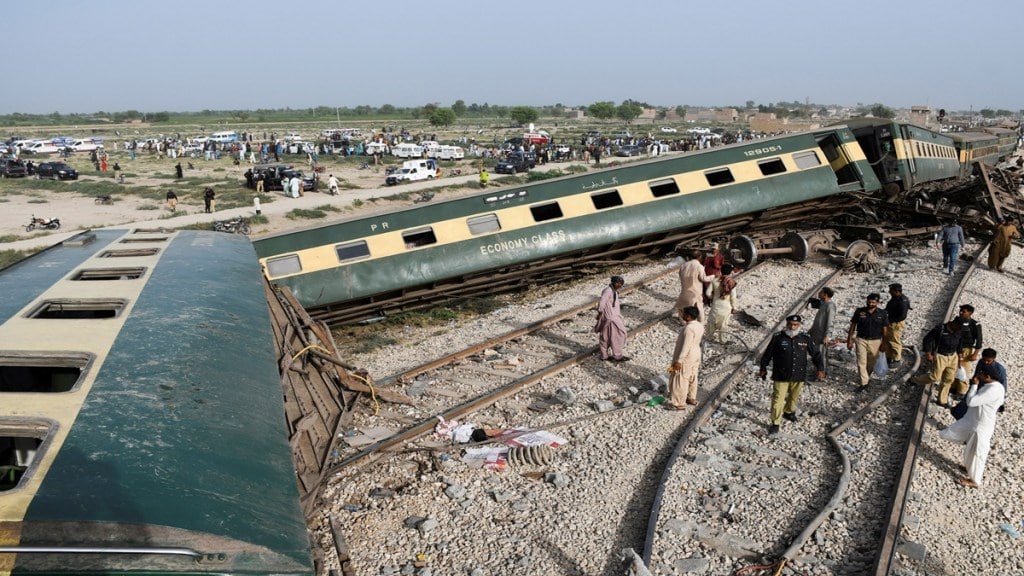A preliminary investigation has revealed that the tragic derailment of the express train, which claimed the lives of at least 31 individuals in Pakistan’s Sindh province, was caused by the absence of fishplates and damage to the track.
The Hazara Express, en route from Karachi to Rawalpindi, derailed near the Sarhari Railway Station in Nawabshah district on Sunday, approximately 275 kilometers from Karachi.
The preliminary report, as cited by the Dawn newspaper on Tuesday, stated, “Missing fishplates and a damaged track caused the derailment of the Hazara Express.”
The inquiry team from Pakistan Railways, composed of six members, released a report on Monday attributing the accident to a fresh rail break and missing fishplates. The locomotive’s skidding was also identified as a contributing factor to the derailment.
The report highlighted that the train’s engine had departed the site without being examined by senior personnel. Additionally, it noted the presence of “little hitting spots” on the iron fishplates and wooden terminal beyond the accident point. Consequently, the engineering and mechanical branches were held responsible for the accident.
The People’s Medical College Hospital in Benazirabad, located in the district housing Nawabshah, confirmed that over 120 injured individuals had been treated at the facility, with most having been discharged after receiving medical attention. Currently, 30 people are undergoing treatment, while 29 bodies have been claimed and taken by family members. The bodies of two unidentified deceased women remain at the hospital.
Two members of the investigation team presented dissenting views. One member disagreed with the report’s conclusions, suggesting that the derailment occurred due to missing fishplates, a broken rail, and engine derailment within the track due to gauge spread. The second dissenting member attributed the derailment to an engine axle jam, resulting in deep fling marks on the fishplates and subsequent bolt breakage.
It is important to note that the report is preliminary, and the final investigation will require more time to prepare. The Federal Government Inspector of Railways is conducting a detailed inquiry on-site to determine the root cause of the tragedy.
(With PTI Inputs)

